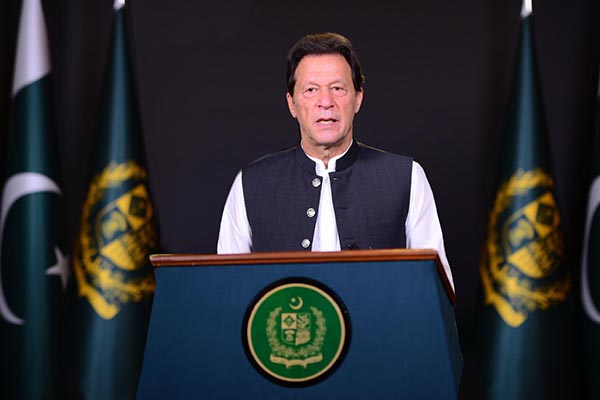
Photo courtesy PID
In address to UNCTAD, Pakistan’s prime minister stresses upon implementation of recommendations of FACTI panel
As the global elite reel from revelations about offshore companies in the Pandora Papers, Prime Minister Imran Khan on Tuesday once again urged the global community to work toward stemming the illicit outflow of money from developing countries to tax havens.
“According to the FACTI [Financial Accountability, Transparency and Integrity] panel $7 trillion are parked in these tax havens and haven destinations,” he said in a virtual address to the World Leaders Summit Dialogue organized by the United Nations Conference on Trade and Development. “This plunder is taking place because of the corrupt ruling elite of the developing world,” he said, warning that this could spiral into a “huge crisis” that would only get worse in the coming years.
The only way to curb this menace, said Khan, was to implement the recommendations of the FACTI panel and acknowledge that richer countries had no incentive to act against money from developing countries being parked on their soil. He said that illicit outflows were “crushing” the people of the developing world, repeating his stance that this devalued local currency, leading to inflation and poverty. He reiterated his belief that if this situation were not addressed, it would provoke economic migration from developing nations to richer states.
In his wide-ranging address, the prime minister also urged the world to prioritize vaccine equity, debt relief, and climate financing, stressing this was essential for global economic recovery in the wake of the COVID-19 pandemic. He recalled that he had campaigned for debt relief when COVID-19 first broke out, adding that this should be extended till the end of the pandemic. He also reiterated the need for richer countries to help the developing world with financing to counter the impact of climate change.
